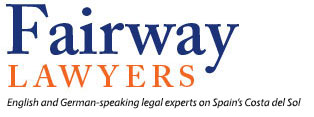QUESTION
As a British expatriate, now residing in Spain, I am quite worried about my children having to pay Inheritance Tax, which I have been told is rather high.
Recently, I have been advised to use what’s called a “reverse mortgage”, which works as follows: I can take a mortgage of perhaps half of my property’s value, and invest the capital I receive at a rate higher than the borrowing rate, thus reducing the future Inheritance Tax to be paid. How effective is this mechanism really?
ANSWER
Although a great deal of advertising has been given lately in relation to these “reverse mortgages”, it must be primarily stated that the mechanism proposed to reduce Spanish Inheritance Tax, would only effectively reduce the same in the event of the inheritors being non-Spanish residents.
As a brief overview of Spanish Inheritance Tax, inheritors, considered taxpayers of the same, can be liable to said tax by two means:
1. Personal obligation, meaning that so long as the inheritors are resident in Spain they will be subject to Spanish Inheritance Tax for anything and everything they inherit.
2. “Real” obligation, meaning that any non-residents shall be liable to Spanish Inheritance Tax for any assets allocated in Spain that they inherit.
Thus, should your inheritors not be Spanish residents, they would pay Inheritance Tax only for the net value (i.e. gross value minus debts and charges) of your fixed assets allocated in Spain (such as a property); this is the case in which the “reverse mortgage” may be interesting from a tax point of view.
In any case, even if your inheritors were not Spanish residents, it must be noted that, in practice, such reduction may be highly questioned and maybe even denied by a possible Tax Inspection.
In this context, for the purposes here highlighted, this capital could not be invested in Spain (as it would then be taxed here), so it could be deemed to be not deductible from the property allocated in Spain.
On the other hand, if your inheritors are Spanish residents, Inheritance Tax would arise for the whole of your estate (divided between your inheritors), not making any difference whether they inherited a property or any other type of investment, wherever allocated.
Similarly, they would also inherit any standing debts on your estate, which would reduce its net taxable value.
To illustrate this point: suppose you have a property of 100; you mortgage it for 90, and invest said 90 in another asset: therefore, you are liable for 100 (100 + 90 – 90 = 100).

